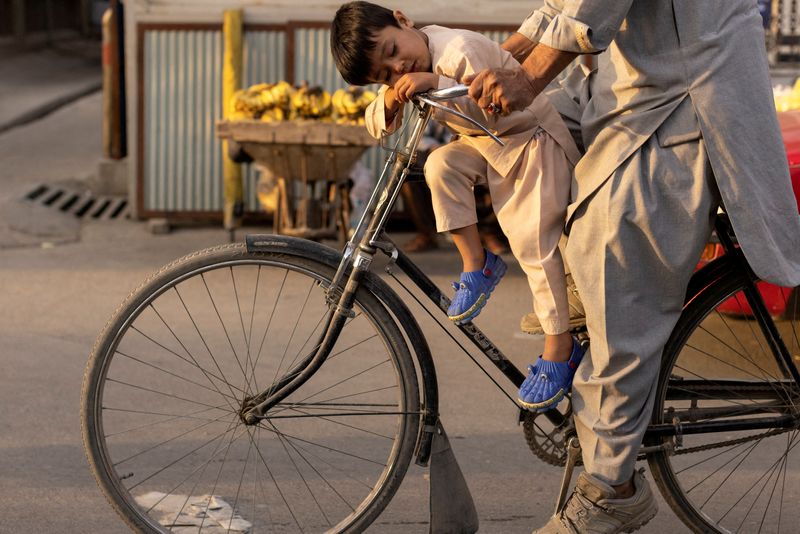By Arshad Mohammed, Jonathan Landay and Andrea Shalal
WASHINGTON (Reuters) - Donors agreed on Friday to transfer $280 million from a frozen, trust fund to the World Food Program (WFP) and UNICEF to support nutrition and health in Afghanistan, the World Bank said as it seeks to help a country facing famine and economic freefall.
The World Bank-administered Afghan Reconstruction Trust Fund will this year give $180 million to WFP to scale up food security and nutrition operations and $100 million to UNICEF to provide essential health services, the bank said in a statement.
The money would aim to support food security and health programs in Afghanistan as it sinks into a severe economic and humanitarian crisis that accelerated in August when the Taliban overran the country as the Western-backed government collapsed and the last U.S. troops withdrew.
The United States and other donors cut off financial aid on which Afghanistan became dependent during 20 years of war and more than $9 billion of the country's hard currency assets were frozen.
The United Nations is warning that nearly 23 million people – about 55% of the population – are facing extreme levels of hunger, with nearly 9 million at risk of famine as winter takes hold in the impoverished, landlocked country.
Using reconstruction trust fund money and channeling it through the WFP and UNICEF, both part of the U.N. family, appears to be a way to get funding into the country for basic needs in a manner that does not necessarily implicate U.S. sanctions against the Taliban.
"This decision is the first step to repurpose funds in the ARTF portfolio to provide humanitarian assistance to the people of Afghanistan at this critical time," the bank said, saying the agencies had presence on the ground to deliver services directly to Afghans in line "with their own policies and procedures."
"These ARTF funds will enable UNICEF to provide 12.5 million people with basic and essential health services and vaccinate 1 million people, while WFP will be able to provide 2.7 million people with food assistance and nearly 840,000 mothers and children with nutrition assistance," it added.
Earlier on Friday, Reuters reported exclusively that the donors were expected to approve the $280 million transfer. On Dec. 1, Reuters reported that the World Bank board had backed transferring the ARTF funds to the two agencies.
In its statement, the bank said it would "continue to work with ARTF donors to unlock additional ARTF funds to support the Afghan people."

Laurel Miller, a former acting U.S. special representative for Afghanistan and Pakistan, criticized the decision to tap the ARTF for strictly humanitarian aid, saying money should come from other sources and the $1.5 billion fund should be used for a major initiative to halt the collapse of state institutions whose workers have not been paid for months.
"We're talking about a collapse of public services that serve the Afghan people," said Miller, who oversees the Asia program of the International Crisis Group, a think tank. "That’s not about helping the Taliban. That’s about helping Afghans who need a functioning state. They need more than food aid."